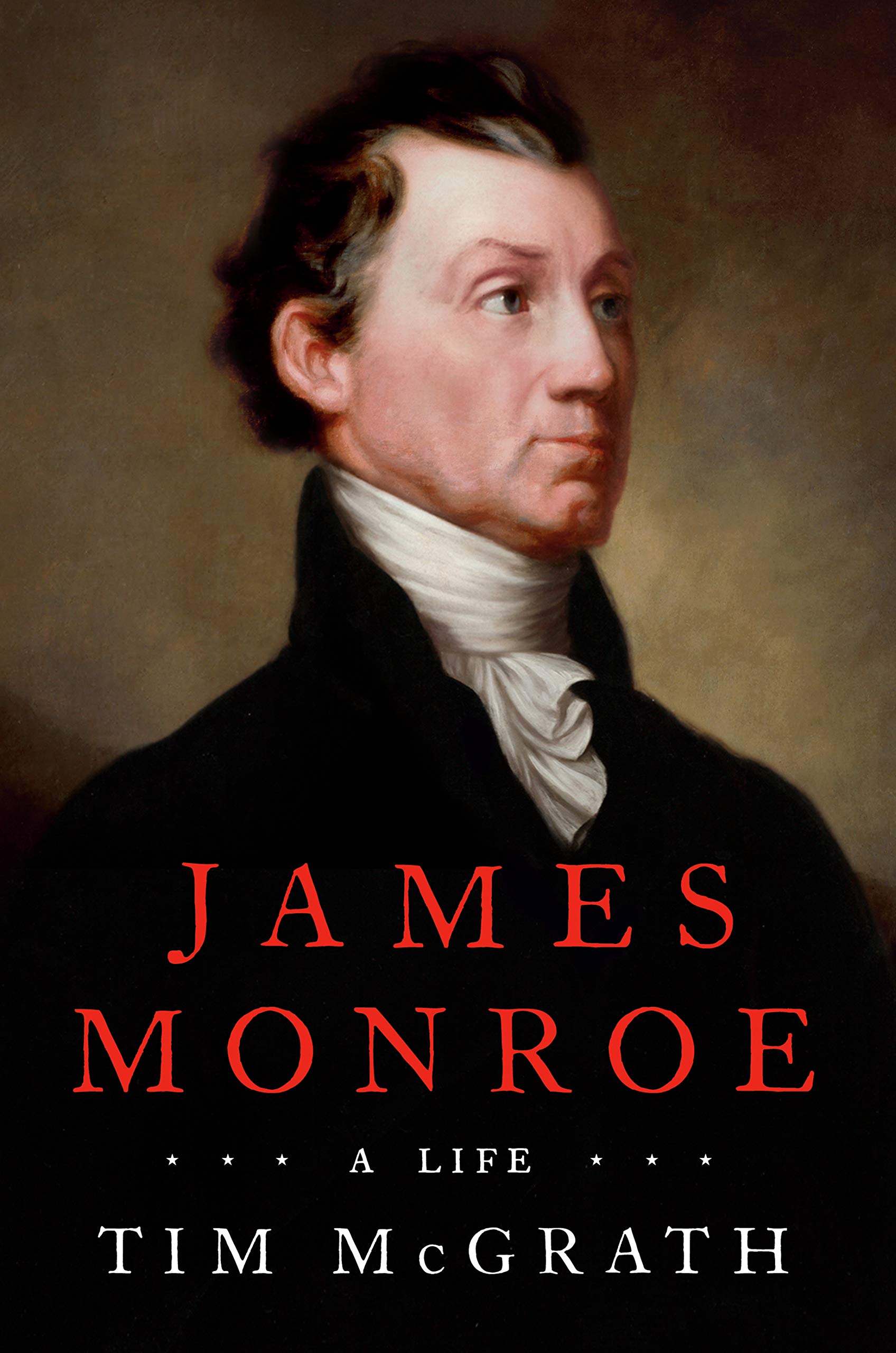“James Monroe: A Life”
by Tim McGrath

"James Monroe: A Life" by Tim McGrath
New York: Dutton, 2020.
Reviewed by Ed Lengel
Perhaps no other major president has been more ill-served by biographers than James Monroe. Until recently, the only significant works about him have been Harry Ammon’s densely academic James Monroe: The Quest for National Identity (1990), and Harlow Giles Unger’s flawed, hagiographic The Last Founding Father: James Monroe and a Nation’s Call to Greatness (2009). Tim McGrath’s James Monroe: A Life is therefore a long-overdue treatment of a man who, as the title of Unger’s book suggests, might be regarded as the last of the Founding Fathers, and whose service to his country transitioned the United States from the colonial era to the continental expansion of the nineteenth century.
McGrath’s perspective on Monroe seems curious at first glance. A naval historian whose previous books include a life of Commodore John Barry and a history of the Continental Navy, McGrath dedicates his work to a group of primarily naval veterans of World War II. The opening vignette of McGrath’s biography takes place in the aftermath of the burning of Washington, D.C., during the War of 1812, when President James Madison chose Monroe as his Secretary of War and tasked him with rebuilding the country’s shattered military apparatus. As these harbingers would indicate, McGrath views his subject in some respects from a military point of view. That might seem strange given that Monroe’s primary bona fides are civilian, namely in his two terms as president. On reflection, though, the approach is not inappropriate and indeed beneficial, in that it was Monroe’s presidency that transformed the United States from a struggling regional entity to a strategic power aspiring to global influence.
Moving quickly through Monroe’s early life in his native Virginia, McGrath dwells at some length on Monroe’s formative experiences in the Revolutionary War, including his near-death on the battlefield at Trenton, New Jersey, in 1776. We then explore Monroe’s emerging political career as a delegate to the Confederation Congress, his visit to the war-torn Northwest Territories, and his involvement in the creation of the Northwest Ordinance that marked an important first step in American expansion. Monroe’s service as a U.S. Senator from Virginia from 1790-1794 likewise was focused not just on political, but on strategic issues and foreign affairs, particularly relating to the French Revolution and the contending passions that it elicited in the United States. Monroe’s sympathies with the French revolutionaries were decidedly in tune with Thomas Jefferson’s opinions, and opposed to those of Alexander Hamilton and President Washington, making his relations with the chief executive increasingly uncomfortable.
That relationship collapsed in the wake of Monroe’s volatile and controversial tenure as the Minister to France from 1794-1796, which ended in his ignominious recall. McGrath, here as elsewhere, handles his subject with objectivity, recognizing the difficulty of Monroe’s situation in revolutionary France, but also admitting that Monroe’s republican partisanship blinded him to his responsibilities as the representative of a Federalist administration. Ultimately, Monroe’s failure was of his own doing. In time, though, Monroe matured, and in the post-Federalist era that followed the presidencies of Thomas Jefferson and James Madison his real capabilities as a leader—emerged.
As president of the United States, Monroe sought to create, not so much a non-partisan as a post-partisan government; and he came close to succeeding in what came to be called the Era of Good Feelings. McGrath is effective in highlighting Monroe’s efforts, but he does not go overboard in suggesting that he was in any way a paragon of virtue. Just as he benefited from the circumstances of his ascension to the presidency, allowing him to govern practically at will, so was Monroe unable to harness the forces that, in time, ruptured the consensus that the all-powerful Republicans attempted to create. McGrath is at his most enthusiastic and articulate in praising Monroe’s work to restore American military strength and preparedness in the wake of the disaster of 1814, and to establish American strategic primacy in the western hemisphere—the famous Monroe Doctrine.
Though McGrath’s biography of James Monroe is long at just under eight hundred pages, thorough in its treatment and meticulous in its research, it carries none of the academic ponderousness of Ammon’s biography. Nor does McGrath, unlike Unger, overstate his subject’s personal merits. In this well-written and superior biography, however, the author convincingly reveals Monroe’s defining impact on the American presidency, and on the country’s place in the world.
Ed Lengel is the Chief Historian at the National Medal of Honor Museum; Arlington, Texas.




